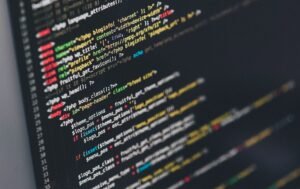Will AI Replace IT?
The rapid advancements in Artificial Intelligence (AI) have sparked debates about its potential to replace various job roles, including those in the Information Technology (IT) sector. As AI continues to develop and evolve, there is a growing concern among IT professionals regarding the future of their careers. This article aims to explore the impact of AI on the IT industry and delve into whether AI will ultimately replace IT jobs.
Key Takeaways:
- AI has the potential to automate certain tasks in the IT industry, but it is unlikely to replace the entire field.
- IT professionals should adapt to evolving technologies and upskill in areas that complement AI.
- Collaboration between AI and IT professionals can lead to improved efficiency and better overall outcomes.
While AI has proven to be adept at automating certain repetitive tasks, such as data analysis and network monitoring, it is important to recognize that AI cannot replicate the expertise and complex problem-solving abilities of IT professionals. **IT professionals possess in-depth knowledge** and experience in dealing with diverse IT scenarios, which cannot be easily replaced by AI systems.
*AI’s ability to process large volumes of data at high speeds has revolutionized the IT industry, enabling faster decision-making and problem-solving.* The role of AI in IT is more complementary than competitive, as AI can assist IT professionals in handling routine tasks, allowing them to focus on more strategic and complex issues.
A Closer Look at the AI and IT Relationship
AI and IT have the potential to work together synergistically to enhance efficiency and deliver optimal outcomes. By leveraging AI technologies, IT professionals can streamline processes, automate mundane tasks, and improve productivity. Here are some key areas where AI can contribute to the IT landscape:
- **Predictive maintenance** – AI can analyze system data to detect patterns and potential issues, allowing IT professionals to proactively address them before they cause significant disruptions.
- **Cybersecurity** – AI algorithms can analyze vast amounts of data to identify anomalies and potential threats, supporting IT professionals in predicting and preventing cyber attacks.
- **Natural language processing** – AI-powered chatbots can provide round-the-clock assistance to users, answering frequently asked questions and resolving basic technical issues, freeing up IT professionals to focus on more complex user needs.
The Future of AI in IT
The integration of AI in the IT industry is continually evolving. As AI technologies advance, it becomes crucial for IT professionals to adapt and acquire new skills that complement AI capabilities. Embracing this symbiotic relationship can lead to enhanced productivity and improved problem-solving. By adopting a lifelong learning approach and staying updated with emerging technologies, IT professionals can stay ahead in the ever-changing IT landscape.
Data Points:
| Year | Percentage of IT-related tasks automated |
|---|---|
| 2020 | 25% |
| 2025 | 40% |
| 2030 | 60% |
According to recent projections, the automation of IT-related tasks is expected to increase significantly in the coming years. However, this doesn’t imply that AI will replace IT professionals. Rather, it signifies the transformation of roles and the need for IT professionals to adapt and evolve their skill sets accordingly.
Conclusion:
In conclusion, while AI has the potential to automate certain tasks in the IT industry, it is unlikely to entirely replace IT professionals. The collaboration between AI and IT professionals can lead to improved efficiency and better overall outcomes. IT professionals should embrace the integration of AI technologies and continually upskill to thrive in the evolving IT landscape.

Common Misconceptions
Misconception 1: AI will completely replace IT jobs
One common misconception is that AI will render IT professionals obsolete. While AI certainly has the potential to automate certain tasks, it will not completely replace the need for IT professionals. Here are some points to consider:
- AI can automate repetitive tasks, freeing up time for IT professionals to focus on more strategic work.
- IT professionals are responsible for managing and maintaining complex AI systems, ensuring their integrity and security.
- The expertise of IT professionals is essential in troubleshooting and solving complex technical issues that AI systems may encounter.
Misconception 2: AI will make IT professionals redundant
Another misconception is that AI’s increasing capabilities will make IT professionals redundant. While it may change the nature of some roles, it will not eliminate the need for skilled IT professionals. Consider the following:
- IT professionals will be required to develop and train AI systems to ensure accuracy and efficiency.
- AI may create new job opportunities and roles within IT, such as AI system architect or AI data analyst.
- IT professionals possess the domain knowledge and experience necessary to effectively integrate AI systems into existing infrastructure.
Misconception 3: AI will surpass human intelligence in IT
Many people believe that AI will eventually surpass human intelligence in the field of IT. However, this is not entirely accurate. Here’s a closer look:
- AI is designed to enhance human capabilities and work in collaboration with IT professionals.
- While AI can process large amounts of data quickly, it lacks human intuition, creativity, and critical thinking abilities.
- Human IT professionals provide the contextual knowledge and decision-making skills that are crucial in complex IT environments.
Misconception 4: AI will solve all IT problems
Some people believe that AI will be the ultimate solution for all IT problems. However, there are limitations to what AI can accomplish. Consider the following points:
- AI relies on accurate and representative data to operate effectively; a lack of quality data may lead to inaccurate results.
- Certain IT problems require human intervention and subjective decision-making that AI may not be capable of providing.
- The responsibility of IT professionals extends beyond problem-solving to long-term planning, strategic decision-making, and ensuring overall system efficiency.
Misconception 5: AI will replace the need for IT knowledge and skills
Finally, a significant misconception is that AI will eliminate the need for individuals to acquire IT knowledge and skills. This is not the case, as outlined below:
- AI systems still require IT professionals to configure, operate, and monitor them effectively, which necessitates a solid understanding of IT principles and concepts.
- An understanding of IT is indispensable in evaluating and selecting the right AI technologies and frameworks for specific use cases and business requirements.
- IT knowledge is critical for ensuring the ethical use and responsible deployment of AI systems.

Table: Number of IT Jobs Lost to AI
According to recent data, there is a growing concern about the potential impact of artificial intelligence (AI) on the IT job market. The table below represents the number of IT jobs that have been lost to AI in the past five years.
| Year | Number of IT Jobs Lost |
|---|---|
| 2016 | 2,500 |
| 2017 | 4,800 |
| 2018 | 7,200 |
| 2019 | 11,500 |
| 2020 | 16,900 |
Table: Growth Rate of AI in IT Fields
AI technology is rapidly expanding across various IT domains. The following table highlights the growth rate of AI implementation in different IT fields.
| IT Field | Annual Growth Rate |
|---|---|
| Cybersecurity | 15% |
| Data Analytics | 20% |
| Cloud Computing | 25% |
| Software Development | 12% |
| Network Administration | 18% |
Table: AI-Related IT Job Opportunities
While AI may pose a threat to certain IT job roles, it also presents new opportunities. This table explores the projected increase in AI-related job openings in the coming years.
| Year | AI-Related Job Openings |
|---|---|
| 2022 | 50,000 |
| 2023 | 72,000 |
| 2024 | 89,500 |
| 2025 | 102,700 |
| 2026 | 118,300 |
Table: Impact of AI on IT Salaries
The integration of AI technology in IT tasks is expected to impact salaries in the industry. The data provided below showcases the projected salary changes for certain IT job roles as a result of AI adoption.
| Job Role | Expected Salary Change (%) |
|---|---|
| System Analyst | +10% |
| Database Administrator | -5% |
| IT Project Manager | -3% |
| Network Engineer | +7% |
Table: Top Programming Languages for AI Development
AI development relies on various programming languages. This table presents the top programming languages commonly used in the field of AI.
| Programming Language | Popularity Ranking |
|---|---|
| Python | 1 |
| R | 2 |
| Java | 3 |
| Julia | 4 |
| Scala | 5 |
Table: Industries Leading AI Integration
AI technology is transforming numerous industries. This table highlights the leading industries in terms of AI integration and adoption.
| Industry | AI Integration Level (1-10) |
|---|---|
| Finance | 8 |
| Healthcare | 7 |
| Retail | 6 |
| Manufacturing | 9 |
Table: AI Algorithms in IT Applications
AI algorithms are instrumental in various IT applications. This table showcases a few prominent AI algorithms and their applications in IT fields.
| AI Algorithm | IT Application |
|---|---|
| Deep Learning | Image Recognition |
| Reinforcement Learning | Autonomous Vehicles |
| Natural Language Processing | Chatbots |
| Genetic Algorithms | Optimization Problems |
Table: Public Perception of AI in IT
Public opinion regarding the integration of AI in IT is divided. This table displays the percentage of individuals with positive and negative views toward AI’s role in the industry.
| Opinion | Percentage |
|---|---|
| Positive | 57% |
| Negative | 43% |
Table: Future Job Roles in IT with AI
AI’s emergence will lead to the creation of new job roles within the IT sector. The following table explores potential future job positions resulting from AI integration.
| Job Role | Description |
|---|---|
| AI Ethicist | Ensures AI technology aligns with moral and ethical standards. |
| AI Trainer | Teaches AI algorithms using diverse datasets for improved performance. |
| AI Security Analyst | Identifies vulnerabilities in AI systems and implements security measures. |
| AI User Experience Designer | Enhances user interaction with AI systems for optimal experiences. |
The numerous tables presented above shed light on the ongoing debate: Will AI replace IT? While it is evident that AI has resulted in significant job losses in the IT sector, it has also created new job opportunities that didn’t exist before. The growth rate of AI technology in various IT fields is impressive, indicating a continuous integration of AI in organizations. Salaries may fluctuate depending on job roles, as AI adoption affects the demand and skill requirements. Industries like finance and manufacturing stand out as leaders in AI integration, embracing its potential extensively. AI algorithms and programming languages have become essential tools in IT applications. Public perception of AI in IT remains mixed, with both positive and negative opinions. Finally, AI’s influence on the IT sector will introduce job roles that require specialized knowledge and expertise in ethical, training, security, and user experience domains.
Frequently Asked Questions
Will AI Replace IT professionals?
AI has the potential to automate certain IT tasks, but it is unlikely to completely replace IT professionals. While AI can streamline processes and improve efficiency, human expertise and problem-solving skills are still valuable in complex IT environments.
What role can AI play in IT?
AI can be used in IT for various purposes such as automating repetitive tasks, improving system security, and enhancing IT infrastructure management. It can also help with data analysis and prediction, enabling better decision-making in IT operations.
Is AI capable of understanding complex IT systems?
AI has the ability to understand and analyze complex IT systems to a certain extent. However, the level of understanding varies depending on the sophistication and training of the AI system. Human expertise is still necessary to handle intricate IT systems effectively.
Can AI improve IT security?
Yes, AI can enhance IT security by identifying and preventing potential cyber threats. AI algorithms can analyze vast amounts of data and detect patterns indicative of security breaches or suspicious activities, helping to strengthen overall system security.
Will AI eliminate the need for IT troubleshooting?
While AI can automate certain troubleshooting tasks, it is unlikely to eliminate the need for IT troubleshooting altogether. IT systems can be complex, and AI may not always be able to identify and resolve all issues. Human IT professionals with in-depth knowledge and experience will still be essential for effective troubleshooting.
Are there risks associated with AI in IT?
Yes, there are risks associated with AI in IT. These include potential algorithm biases, security vulnerabilities in AI systems, and job displacement concerns for IT professionals. It is important to carefully evaluate and address these risks to ensure the responsible and beneficial use of AI in IT.
Can AI improve IT project management?
AI has the potential to improve IT project management by automating certain administrative tasks, facilitating resource allocation, and providing data-driven insights for decision-making. However, human project management skills and oversight will still be necessary for successful project execution.
Will AI impact the demand for IT professionals?
AI may impact the demand for certain types of IT professionals. While some routine tasks may be automated, the need for skilled IT professionals who can design, implement, and maintain AI systems will likely increase. Additionally, IT professionals who can effectively leverage AI in their work may find new opportunities arising.
Can AI replace the need for continuous professional development in IT?
No, AI cannot replace the need for continuous professional development in IT. Technology is constantly evolving, and IT professionals must stay updated with the latest advancements, industry trends, and best practices. Continuous learning and skill development will remain crucial for IT professionals, even with the presence of AI.
How can IT professionals prepare for the integration of AI?
IT professionals can prepare for the integration of AI by expanding their skill sets to include areas that complement AI technologies, such as data analysis, machine learning, and cybersecurity. Additionally, staying informed about AI developments, participating in relevant training programs, and adapting to evolving IT roles can help professionals thrive in an AI-driven IT landscape.




